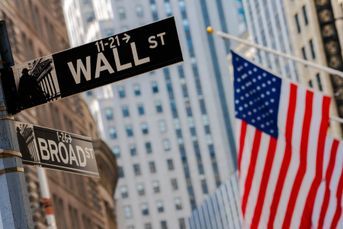How a Long Island hedge fund trader built a $285M burrito fortune

A move down under and disappointing Mexican food led to success.
When Steven Marks moved to Australia in the early 2000s, he was struck by the quality of Mexican food. It was, in his opinion, dismal. The Long Island native, a veteran of Steven Cohen’s SAC Capital and later Cheyne Capital, was so appalled with the burritos and tacos that he resolved to start his own restaurant.
“Back then, Mexican food was something to have while you were having a margarita,” said Marks in an interview Wednesday. “I remember walking into my office one day and telling my business partner, ‘I got the next big idea. We’re gonna reintroduce Mexican food to this country.’”
That became a reality in 2006, when he and childhood friend Robert Hazan opened the first Guzman y Gomez in Newtown, a suburb in Sydney’s inner west. Eighteen years later, the Mexican-themed fast-food chain has 185 restaurants in Australia, 17 in Singapore, five in Japan and four in the US, boasting network sales of A$759 million ($506 million) last year.
Guzman y Gomez Ltd. shares began trading Thursday on the Australian Securities Exchange under the ticker GYG with a valuation of A$2.2 billion at the offering price. Following a blistering debut that saw the stock jump 36% to A$30, Marks, 52, the second-biggest stakeholder after investment firm TDM Growth Partners, owns a position worth more than A$275 million, according to the Bloomberg Billionaires Index.
Australia’s biggest IPO in a year has investors betting big on … burritos 🌯
Mexican-themed fast food restaurant Guzman y Gomez debuts in Sydney after its $223 million IPO https://t.co/cYAIl5VMqo pic.twitter.com/G1jXil6HZ7
— Bloomberg (@business) June 20, 2024
TAKING ON MCDONALD’S
GYG’s offering raised A$335.1 million, with A$200 million to fund expansion plans and the rest going to existing shareholders. GYG wants to eventually grow to 1,000 restaurants in Australia, about the same number as McDonald’s, and plans to open 30 to 40 new joints each year.
“I always called GYG fast food. And everyone was like, ‘No, no, you’re fast casual, McDonald’s is fast food,’” Marks said. “I said, ‘McDonald’s isn’t food.’”
That didn’t deter Guy Russo, the former chief executive officer of McDonald’s Australia, from investing in 2009. He’s now GYG’s chairman and owns a stake worth more than A$182 million, according to the wealth index. His son, Gaetano Russo Jr, is the franchise owner of three GYG restaurants.
It’s not the only family connection: The son of GYG’s Co-CEO Hilton Brett has also entered into a letter of intent to become the franchisee of a restaurant later this year.
Brett was appointed last October, after the company indicated Marks would be stepping down as CEO due to a health scare that turned out to be minor. The resignation never happened.
GYG’s A$2.2 billion IPO valuation works out to A$10.6 million per restaurant. By comparison, Chipotle Mexican Grill Inc., a staple of the US fast-casual restaurant scene, is valued at more than A$40 million per store, according to data compiled by Bloomberg.
ECONOMIC MOATS
Last week, GYG increased the size of the initial share sale by almost 40%, making it Australia’s largest offering in nearly a year, data compiled by Bloomberg show.
Analysts at Morningstar Inc. are cautious on the company’s valuation, saying it’s too early to grant GYG an “economic moat” — a competitive advantage keeping rivals at bay. They estimate shares are worth A$15 each, 32% lower than GYG’s offering price.
“We expect Guzman will maintain attractive store economics over the next decade,” analysts lead by Johannes Faul wrote in a June 7 note. “However, we need to see firm evidence that the brand and store economics are holding up as the store roll out progresses to award a moat and extend our optimism beyond the next 10 years.”
On a statutory basis, GYG lost A$2.3 million last year and projects a further A$16.2 million loss for 2024 before a profit in 2025.
Marks says he got used to hard work early. His father was a “pool hustler from Miami Beach” with addiction issues who left Marks’s mother to raise him, his twin brother and his disabled older brother. By the time he was eight, Marks was doing odd jobs to support his family.
But a gift for numbers helped him win a place at the University of Pennsylvania. After graduating in 1994, he was recruited “by a guy named Stevie Cohen,” Marks said. He landed a job on the equities desk of Stamford, Connecticut-based SAC Capital, staying for four years before heading to Cheyne Capital in London.
Marks said he learned to “laser focus and never compromise,” but eventually decided he was sick of betting on other people’s businesses. “I want to have my own,” he said, “and that’s why I moved to Australia.”
Learn more about reprints and licensing for this article.








